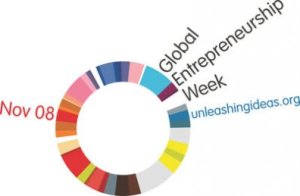Last week was a pretty hectic one for me.
It began with an all day Entrepreneurship Training Day on Monday 9 February. The day introduced postgraduate students to the Library’s collections, and the ways we can support entrepreneurs. Although the students were a bit reticent in the early part of the day they gradually warmed up, and we ended up with a fascinating closing session. The title was “Street smarts and book smarts – are business people and entrepreneurs really talking the same language as entrepreneurship scholars? How can academia actually help business in the current economic climate whilst still producing high quality peer reviewed outputs?”.
I was privileged to chair contributions from Dr Tristram Hooley (Senior Manager: Stakeholders and Networks, Vitae), Simon Butt (Director of Communications, NCGE – National Council for Graduate Entrepreneurship) and Dr Jim Gazzard (Enterprise & Technology Executive, Royal Veterinary College). In addition we were joined at the eleventh hour by the British Library’s partner business coach, Rasheed Ogunlaru. The students, who were evenly split between those who were planning to start their own business and those who were studying entrepreneurship, came up with some excellent questions
One questioner was met with an unexpectedly strong response from the panel. He wanted to know why he should move from his safe and secure research job, with guaranteed funding for the next three years, to the risks and uncertainty of starting his own business. The panellists asked him how he could be so sure of his future employment with government cuts in education funding expected almost any day now. For many people entrepreneurship is the safer option, as they are their own boss and more in control of their destiny.












